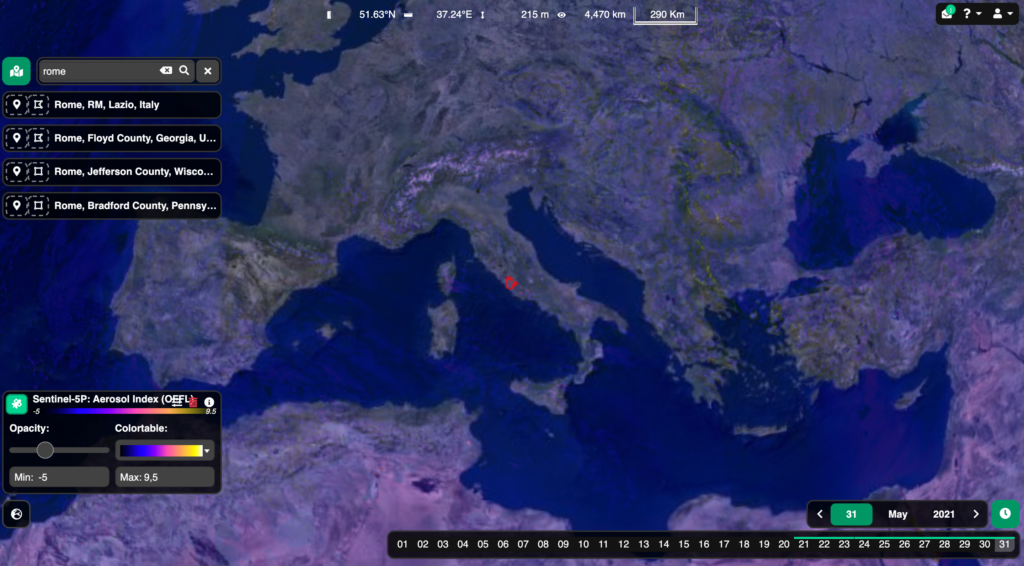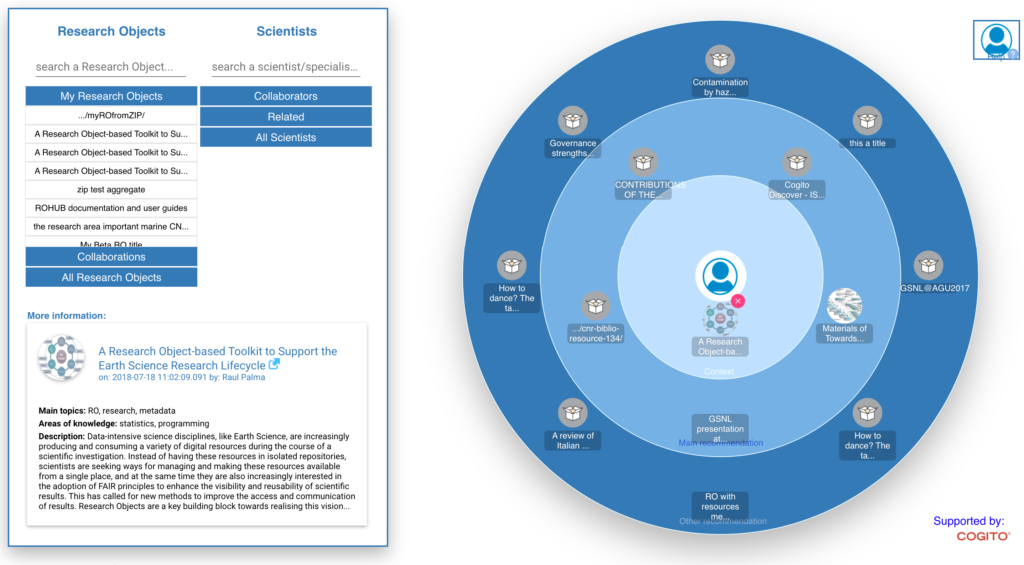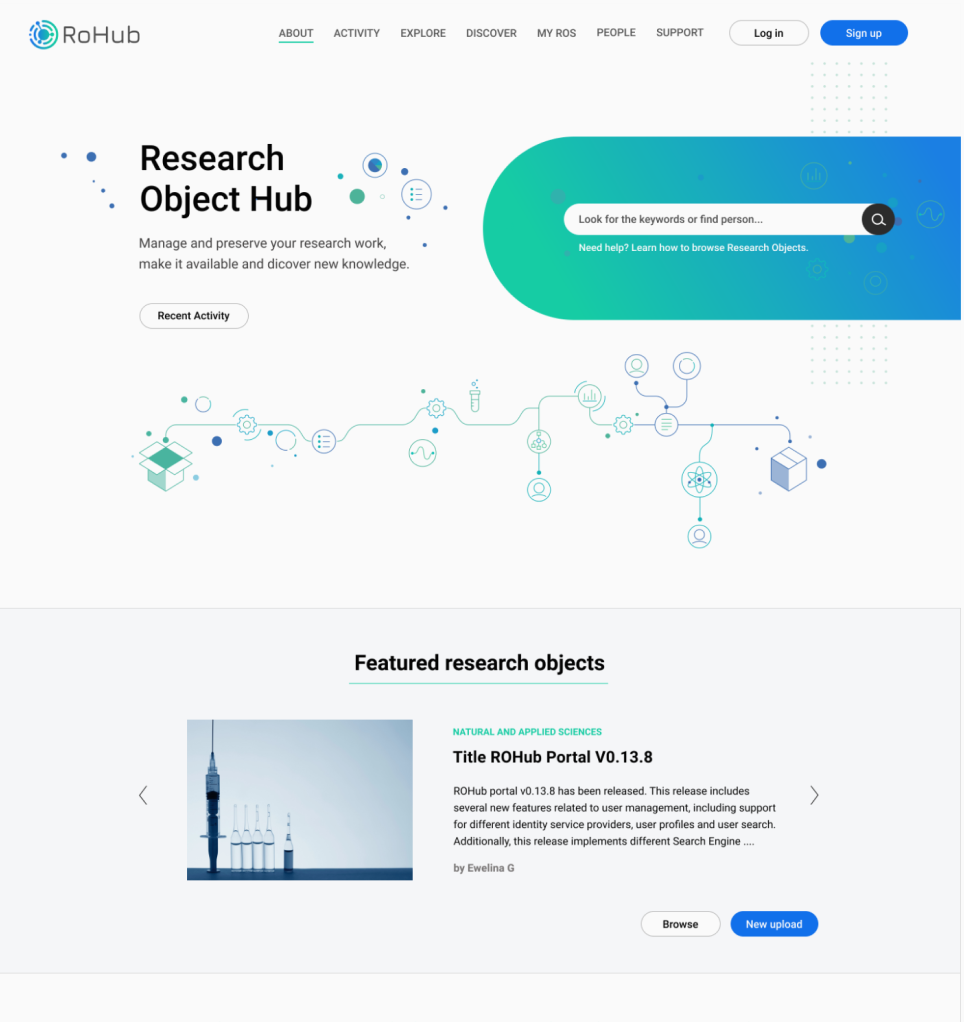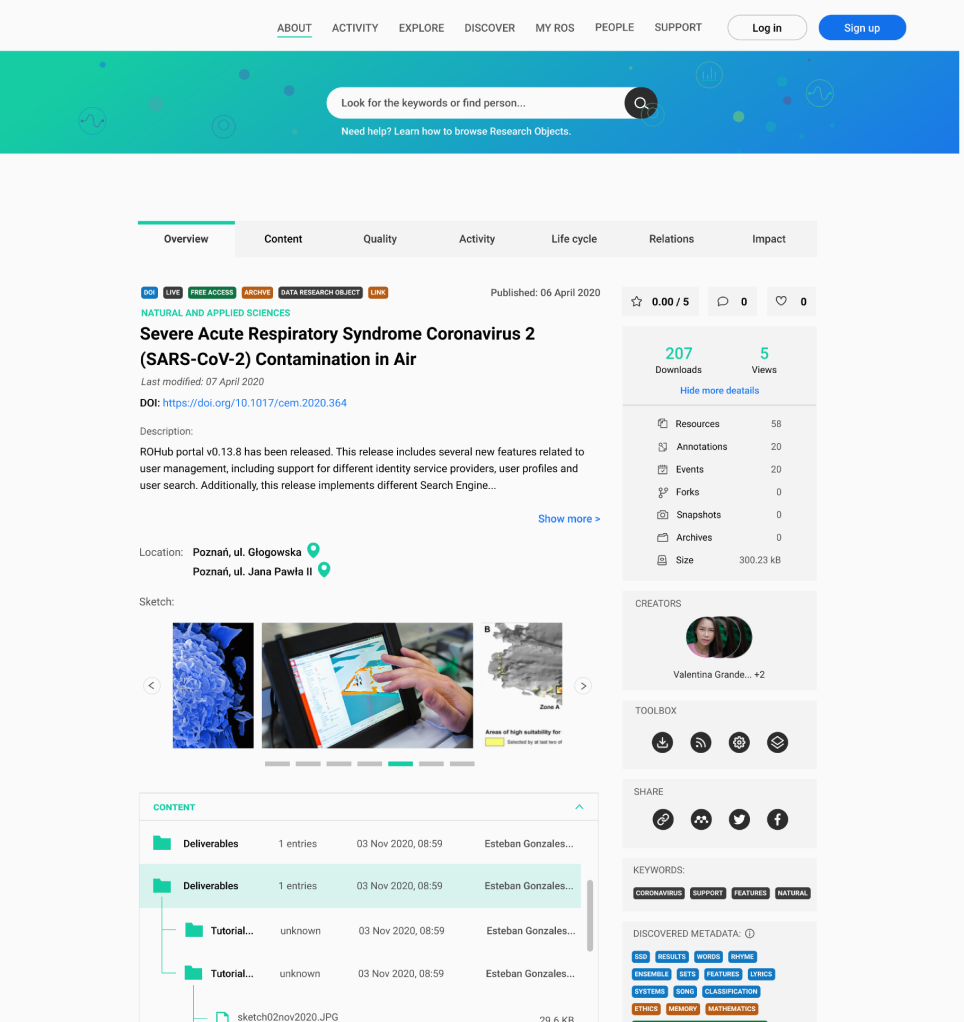research management
Reliance delivers a suite of innovative and interconnected services integrated into EOSC supporting the research lifecycle management for Earth Science Communities and Copernicus Users.
What you can do using RELIANCE suite of services ?
The overall goal of the Reliance project is to realize the vision of FAIR research in EOSC by adopting a holistic approach, not just at the level of the data, methods, code or publications individually, but of the whole research lifecycle as a first-class citizen.
Based on 3 complementary technologies
Reliance proposes a research lifecycle management service ecosystem based on three complementary and interconnected technologies:
ROHub

ROHub is a holistic solution for the storage, lifecycle management and preservation of scientific investigations, campaigns and operational processes via research objects.
It makes these resources available to others, allows to publish and release them through
a DOI, and allows to discover and reuse pre-existing scientific knowledge. Built entirely around the research object concept and inspired by sustainable software management principles, ROHub is the reference platform implementing natively the full research object model and paradigm, which provides the backbone to a wealth of RO-centric applications and interfaces across different scientific communities. ROHub comprises a backend service, exposing a set of Restful APIs, a reference Web client application (see picture below), and integrates multiple added-value research object services (e.g., checklists, stability, enrichment, etc.)
Source: https://unsplash.com/photos/QckxruozjRg
In RELIANCE, ROHub will be interconnected with the other RELIANCE services, namely ADAM platform for Data Cubes services and text mining and semantic enrichment services. ROHUB will be onboarded into the EOSC portal catalogue, and it will leverage and integrate with other EOSC services, including EOSC AAI and research data management services like B2DROP, B2SHARE or Zenodo.
Advanced geospatial Data Management

The Advanced geospatial Data Management platform (ADAM) is a tool to access a large variety and volume of global environmental data.
ADAM allows the extraction of global as well as local data, from the past, current time, as well as short term forecast and long-term projections. Most of the data is updated daily to allow users to always have the most recent data to play with. Besides a Web GUI allowing users to explore, access, process and download data (see picture below), it offers an API enabling access to the data access and processing capabilities directly from the user’s code and applications.

Source: https://unsplash.com/photos/QckxruozjRg
In RELIANCE, ADAM will be interconnected with ROHub, e.g., enabling a single sign-on between the services, as well as enabling researchers to open a data-cube centric research object in the ADAM interface, or to save back data cubes in a research object. It also plans to leverage and reuse existing EOSC services, including EOSC AAI, storage space (e.g., B2DROP), computing power to manipulate heavy data cubes, and the Notebooks services for processing them.
Text mining

Text mining and analytics services help user communities to tap into the information encoded in text that is produced across all the stages in the scientific endeavour.
These services transform text descriptions coming from research resources into structured data. The structured data extracted from research resources is semantic metadata that describe the content of the text beyond the traditional keywords and text snippets, including named entities, multiword expressions, and concepts. Semantic metadata is a key enabler of the FAIR principles since it helps to increase the findability of the research resource, thus fostering their sharing and reuse. In addition, semantic metadata can be used to deliver more accurate search results and content-based recommendations
(see Collaboration Spheres picture below – https://reliance.expertcustomers.ai/spheres/), and fuel analytic services that can support the scientific enterprise.

Source: https://unsplash.com/photos/QckxruozjRg
In RELIANCE, text mining services will be interconnected with ROHub, e.g., enabling a single sign-on between the services, to automatically enrich the stored research objects and/or Data Cubes, to provide recommendations, and to visualize the output of the analytics services in support of the scientific enterprises (e.g., influence network, analytics dashboard, etc.)

